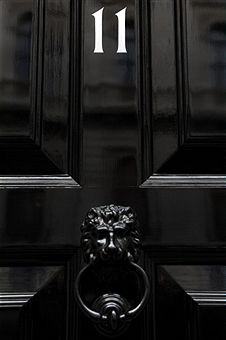 Away, away from Drill Hall in central London, where the Institute for Fiscal Studies has
just delivered its briefing on yesterday’s Budget. And, as useful as this event always is, there’s no denying that another independent body — the Office for Budget Responsibility — has
taken some of the sting and surprise out of it. Not only did the OBR poach the IFS’s former director, Robert Chote, for themselves, but their supplementary Budget document has already done an
IFS-style job on the government: highlighting the trends and tremors that might otherwise go unspoken.
Away, away from Drill Hall in central London, where the Institute for Fiscal Studies has
just delivered its briefing on yesterday’s Budget. And, as useful as this event always is, there’s no denying that another independent body — the Office for Budget Responsibility — has
taken some of the sting and surprise out of it. Not only did the OBR poach the IFS’s former director, Robert Chote, for themselves, but their supplementary Budget document has already done an
IFS-style job on the government: highlighting the trends and tremors that might otherwise go unspoken.
And so we heard, again, about how overall spending has risen slightly after yesterday’s Budget; about the higher borrowing forecasts; about inflation outstripping wages for a couple of years; and so on.
Yet there were some new grace notes in the IFS analysis. Total departmental spending (a component of overall spending) is being cut slightly faster than before. There was a 11.2 per cent cut across four years written into last year’s Spending Review. Thanks largely to new inflation forecasts, that cut is now at 11.7 per cent. Similarly, the coalition’s previous forecasts for health spending have also tightened. They are still meeting their pledge to increase health spending in real terms — but, as the IFS’s Paul Johnson put it, “only just”. A slight change in the inflation forecasts, and those real terms rises could soon flip into real terms cuts.
In terms of specific policies, the IFS put some numbers on what was announced yesterday. For instance, the decision to index national insurance thresholds to CPI inflation, rather than RPI, will cost most folk around £28 a year, and land the Exchequer an extra £1 billion a year by the end of this parliament. Yet it’s not all bad news: the overall effect of the Budget’s tax ‘n’ benefit changes is positive right across the income distribution, even if it pales beside the effect of Osborne’s previous Budgets.
But what about growth? The IFS devoted a section of its briefing to the coalition’s Growth Review, and had this to say:
“These policies may have put fuel into the economy, but they’ll do very little to improve how many miles we get to the gallon.”
In the end, if Osborne was looking for some sort of endorsement from the IFS today, then he didn’t really get it. But neither was he subjected to real censure. The central message was that, courtesy of inflation and higher borrowing, the Chancellor now has less room for manoeuvre when it comes to meeting his fiscal goals. But, then, the OBR could — and did — tell you that yesterday.






Comments